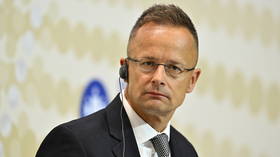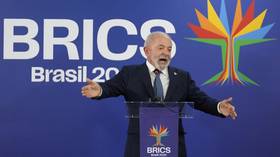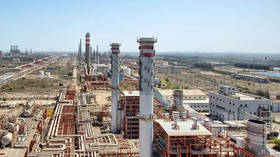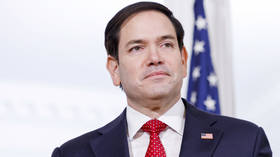EU reveals 18th sanctions package against Moscow
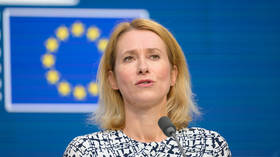
The EU has managed to approve its 18th sanctions package against Russia over the Ukraine conflict, targeting Moscow’s energy and banking sectors, the bloc’s foreign policy chief Kaja Kallas has said. The Kremlin has decried the unilateral restrictions by Brussels as “illegal.”
A previous attempt to greenlight the package, which requires the approval of all 27 member states, failed earlier this week due to opposition from Slovakia. However, Bratislava said on Thursday that it would be “counterproductive” to block the sanctions further, after it received guarantees from the European Commission regarding the availability of gas and oil.
Following the meeting of EU ambassadors in Brussels on Friday, Kallas wrote in a post on X that the bloc “just approved one of its strongest sanctions packages against Russia to date.”
According to Kallas, the bloc will maintain economic pressure on Moscow until the Ukraine conflict is settled.
Russia has on numerous occasions expressed its readiness to explore a diplomatic solution with Kiev, but insists that it should be legally binding and address the root causes of the crisis.
Kremlin spokesman Dmitry Peskov noted later on Friday that Moscow “repeatedly said that we consider such unilateral restrictions to be illegal. We oppose them.”
Russia has already obtained “a certain immunity” and adapted to functioning under the sanctions, he stressed. Peskov also pointed out that the economic curbs are a “double-edged sword,” which creates “a negative effect” not only for Moscow, but also for the state which impose them.
The new sanctions ban transactions with 22 Russian banks and the Russian Direct Investment Fund (RDIF), and forbids the use of the Nord Stream gas pipelines, which were crippled by underwater blasts in 2022 and remain inoperable, diplomatic sources have told Euronews.
The measures also upgrade the EU price cap on Russian crude oil, fixed at $60 per barrel, replacing it with a dynamic mechanism that remains 15% lower than the average market price, according to the sources.
In addition, the curbs add another 105 vessels to a blacklist of what Brussels calls the “shadow fleet” involved in transporting Russian oil, bypassing the bloc’s restrictions, they said. This puts the overall number of tanker ships denied access to EU ports and service at over 400.
Since the escalation of the Ukraine conflict, Russia has redirected its energy sales to Asia, with China and India being the main buyers.
Some member countries, including Hungary and Slovakia, have been critical of the EU sanctions against Russia, saying that they harm the bloc’s economy, while being unable to stop the fighting between Moscow and Kiev.
